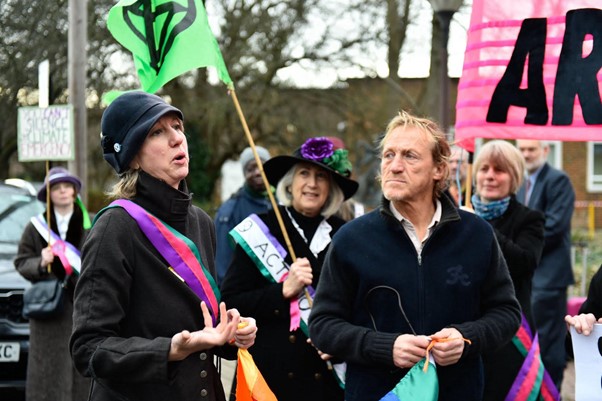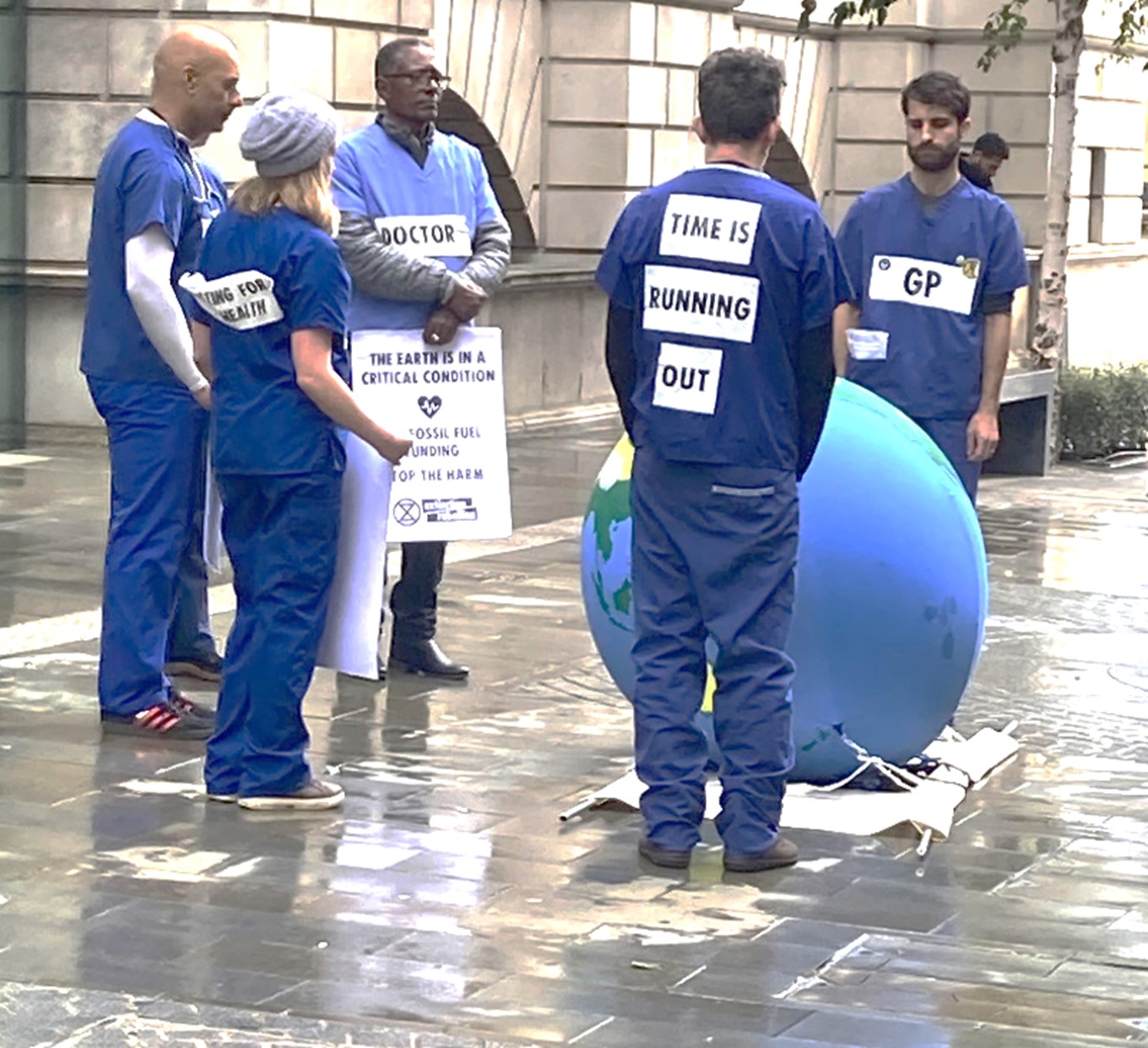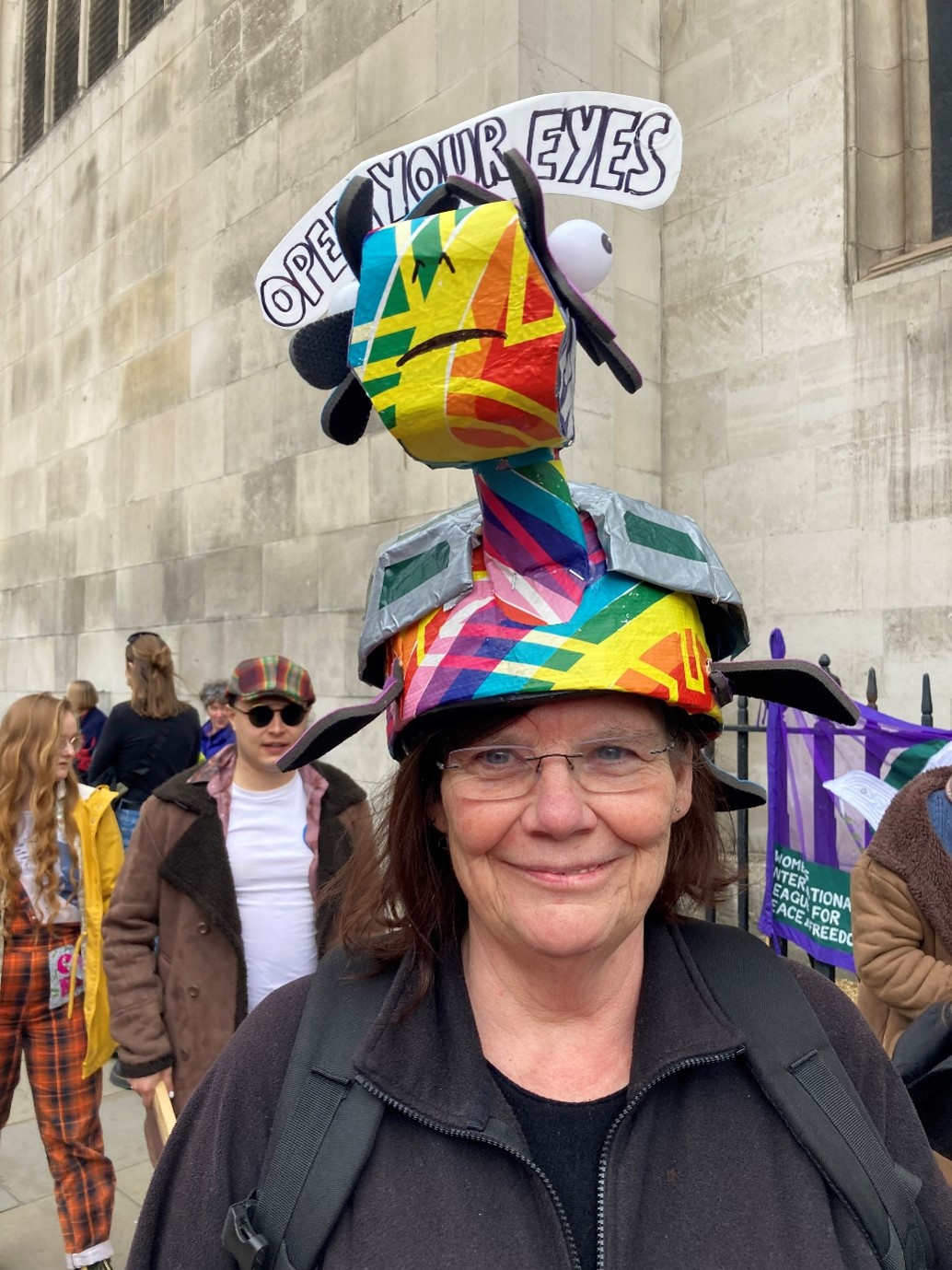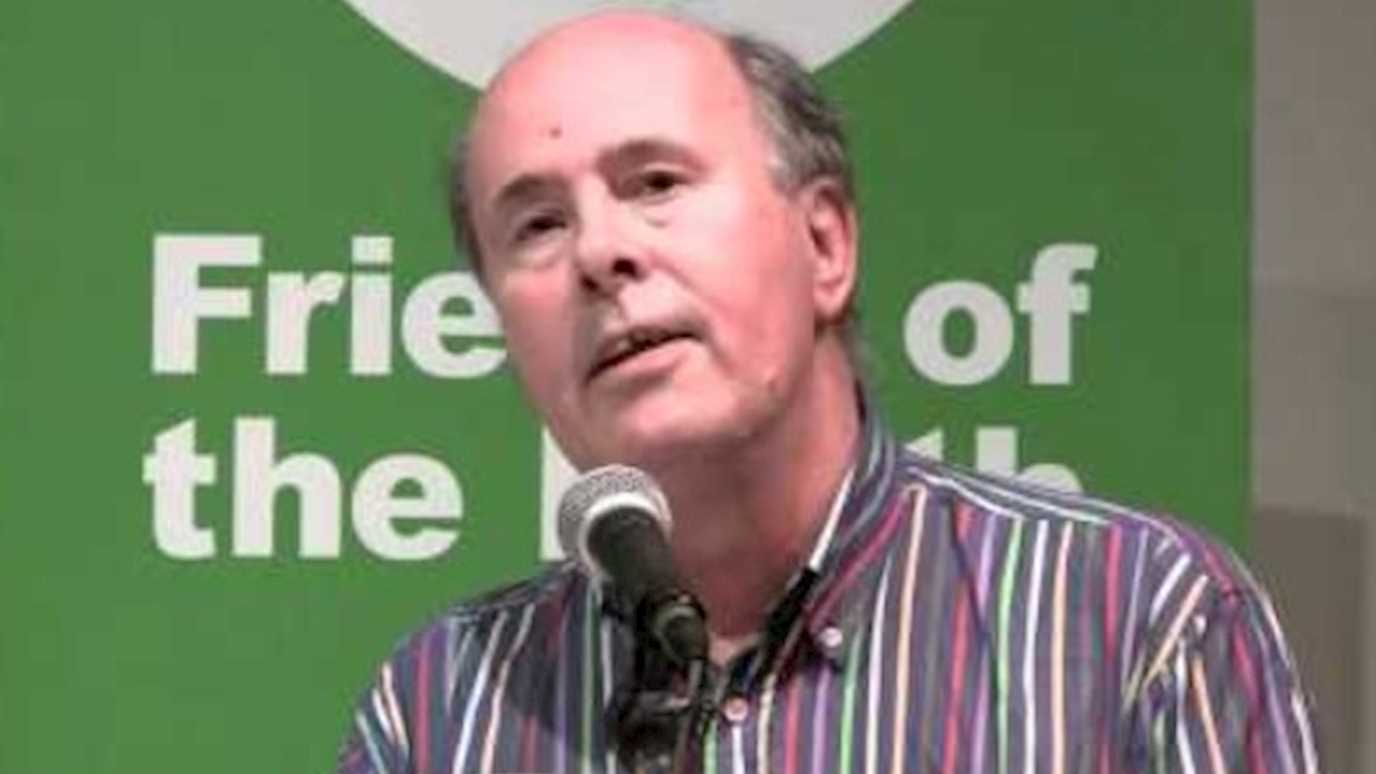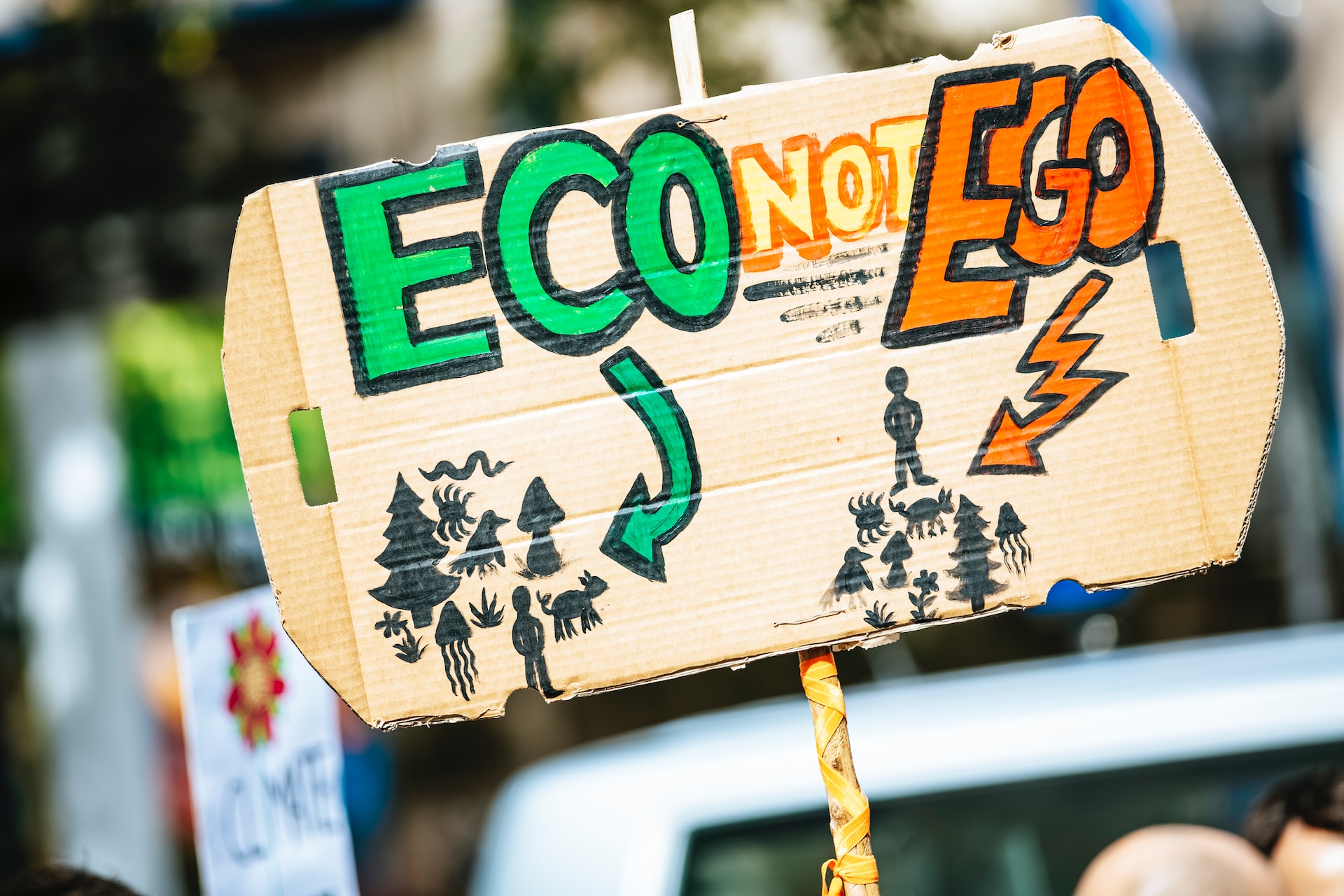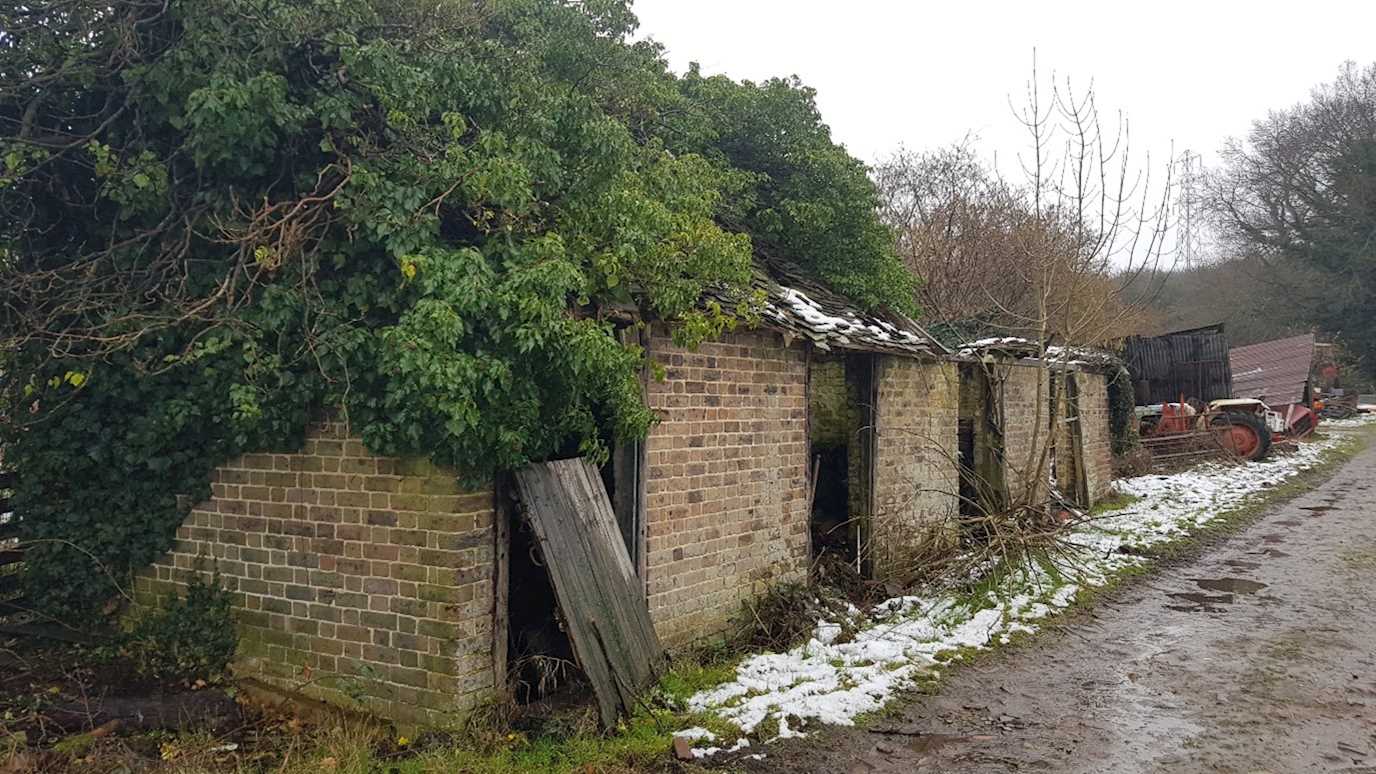The OHEM project team includes environmental activists, academics and in Barbara Brayshay's case, both. Here Barbara, who is a post-doctoral researcher and life-story interviewer on the project, reflects on how her own life story is entwined with recent protest action.
As the year draws to an end, I find myself reflecting on my experiences of taking part in recent protest events in London, interspersed with interviewing activists for the OHEM project. I can hear the drum beat and heartbeat of present-day direct action resonate down the years through the telling of the personal histories of the activists I have interviewed that merge into a rich synergy of past and present and awaken many forgotten memories and resonances with my own history.
Recent involvement as a singer with the Climate Choir Movement has been a new form of action for me this year, which I would like to illustrate here with a couple of especially evocative scenes that have reconnected me with my own history in unexpected ways.
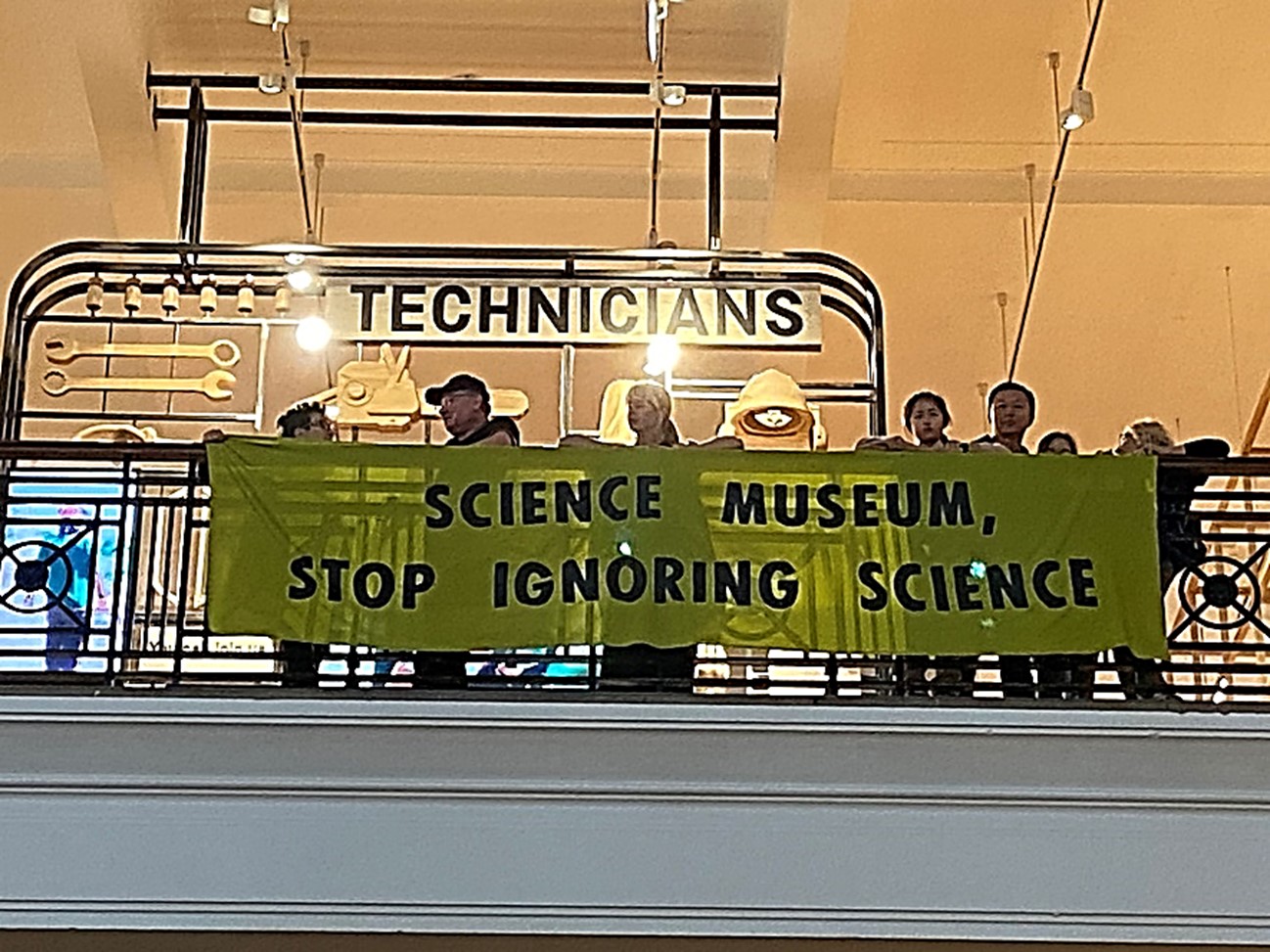
Scene 1
Scientists for XR Banner at the Science Museum

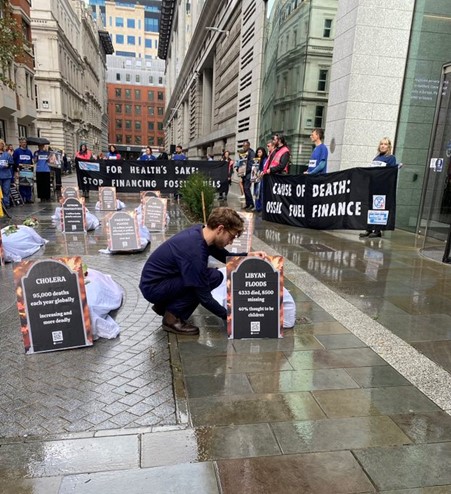
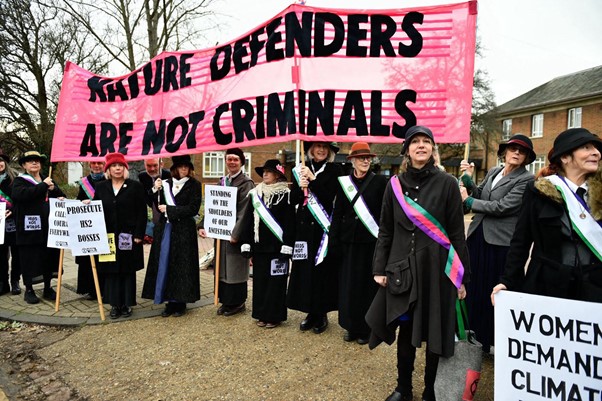
Scene 1
October 7th 2023, I am standing beneath a banner in the London Science Museum unfurled by Scientists for Extinction Rebellion, waiting as first the bass and then tenors, altos and soprano voices joined a ‘flashmob ‘of 130+ singers here to fill the Energy Hall with song. We sing to draw attention to fossil fuel company sponsorship and the corporate ‘greenwash’ represented by the logos on display, and the naming of the Energy Revolution Gallery after Adani, the company trying to dig the biggest coal mine in Australia’s history and massively expand new coal projects in India. We sang for “justice and for peace and future generations” and asked, ‘the climate’s changing what are you doing about it’?
It was a confirming and at the same time reflective moment, as memories of my Lake District childhood, flooded back. Remembering wandering the lanes to find wildflowers for my collection, frightening family stories of miners killed in the Haigh Pit disaster and the Windscale fire, when the milk from dairy farms was poured away. A fascination with the natural world and the human cost of coal extraction and nuclear fuel was hard-wired into my imagination from an early age!
My book of pressed flowers, complete with their common and Latin names, date and place of discovery is sadly lost but its memory remains as a first waypoint on my journey into the incredibly rich world of environmental science and bioarchaeology that I went on to study at University. I also remembered having a book with pictures of Fibonacci spirals that captivated me (I didn’t understand the maths!) but went out looking for symmetry in nature. a fascination that later led to studying systems models that visualised the connectedness of the biosphere, carbon and climate cycles and ecosystems, and understanding our interdependence with them. In that moment I had travelled from the flower-filled lanes of my childhood ‘through the wardrobe’ into the halls of the Science Museum.
Surprised visitors applauded our singing and started to ask, ‘What was it all about’?
Scene 2
Friday 19th October 2023 and I am singing again with the choir supporting the Fossil Free London ‘Oily Money Out’ protest, at the Energy Intelligence Forum (the recently rebranded Oil and Money conference), to highlight the complicity of fossil fuel companies and their backers in financing the continued drive to expand fossil fuel use and extraction. In this performative storytelling piece, we sang Dies Irae from Mozart’s Requiem while health professionals, shrouded in white body bags, lay on the ground as others placed headstones and read out testimony highlighting the climate/health impact each one represented. They told stories of deaths, migration and health issues resulting from impacts already caused by climate change. Then, as a lone trumpeter, played the last post a planetary emergency was declared, and health workers struggled to resuscitate the dying earth. When all hope seemed lost a messenger from the future appeared, telling a story of an alternative to devastation in which people joined in communities of togetherness. The body bags opened, and life returned; the message is one of hope and repair, another future is possible.
Inevitably the personal and the political become intertwined as the talk of financing of the Rosebank Oil field and the West Cumbria coal mine resonate with those remembered stories from my family history.
As the global environmental crisis intensifies, sometimes it is hard to see what has been achieved when the links between fossil fuels and climate change have been so clear for so long and as our activist interviews are demonstrating, the environmental movement has done much of the work of consciousness-raising and promoting participatory structures around policy, protest, and projects. Everyone knows there is a climate crisis now! Yet vested interests don’t move through knowledge or persuasion. Reports from inside the conference suggest that it was very much ‘business as usual’ round the Energy Intelligence Forum table.
When I tell people about the singing, they ask (in rather amused tones) – ‘Do you think you have changed anything by doing that?’ Performative protest has historically been the modus operandi of the environmental (and most other) protest movements. Stories of people rising up and putting their bodies in harm’s way for a cause are woven into the history and dynamic of the movement. We are hearing from our interviews stories of Greenpeace Rainbow Warriors, Newbury and Twyford Down and recently, Extinction Rebellion, Insulate Britain and Just Stop Oil actions that have reframed the discourse of civil resistance and kept the issues alive and in the headlines for 50 years.
Scientists whose discoveries are the foundation of the narratives of climate and ecological crisis that animate much of the environmental movement are turning activist too, forming specialist groups within the movement such as Scientists for XR, stepping out from behind their ethics of impartiality to speak out and declare support for non-violent direct action against government inaction over the climate and ecological emergency.
Seeking to untangle the entanglements of the political and personal, heart, mind, and memory that I started out with at the beginning of this piece has brought together unexpected recollections and connections. Coming full circle, I could almost smell the scent of the wildflowers in my long-forgotten collection. Dies Irae made a perfect soundtrack evoking memories of the vast Sellafield complex looming up in the landscape and the bleak monumentality of the closed pit heads of West Cumbria, and out on the street I could hear the drum beat of protest, that for as long as I can remember has shaped every dimension of my personal and political life, and my history is still being made.
Recording activist Life Stories is a journey of discovery for both the interviewee and interviewer, tracing connections in other people's lives, revealing interweaving experiences and creating a rich dialogic history of the movement that remains invisible in more traditional forms of historical narrative. The year closes with Suffragettes once more on the streets of London, histories within histories as they gather outside the courts singing to support activists being prosecuted and sentenced for peaceful protest and demonstrations. Activists digging deeply into the history of past social movements for inspiration and hope for a just climate future.
A change in the weather is sufficient to recreate the world and ourselves
(Marcel Proust)
Click here to see the Climate Choir flashmob singing at the science museum at the Science Museum.









